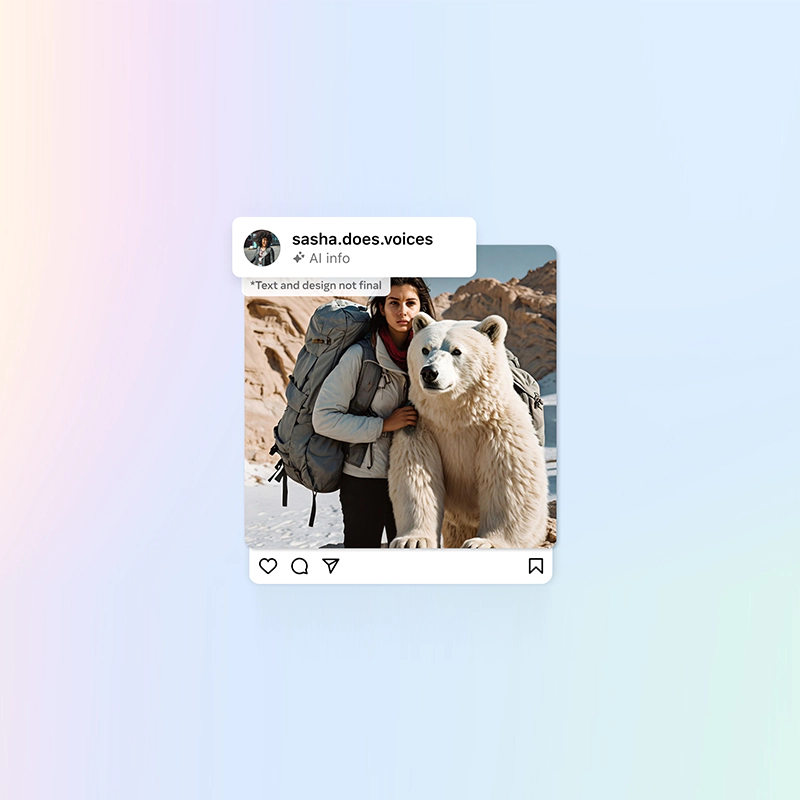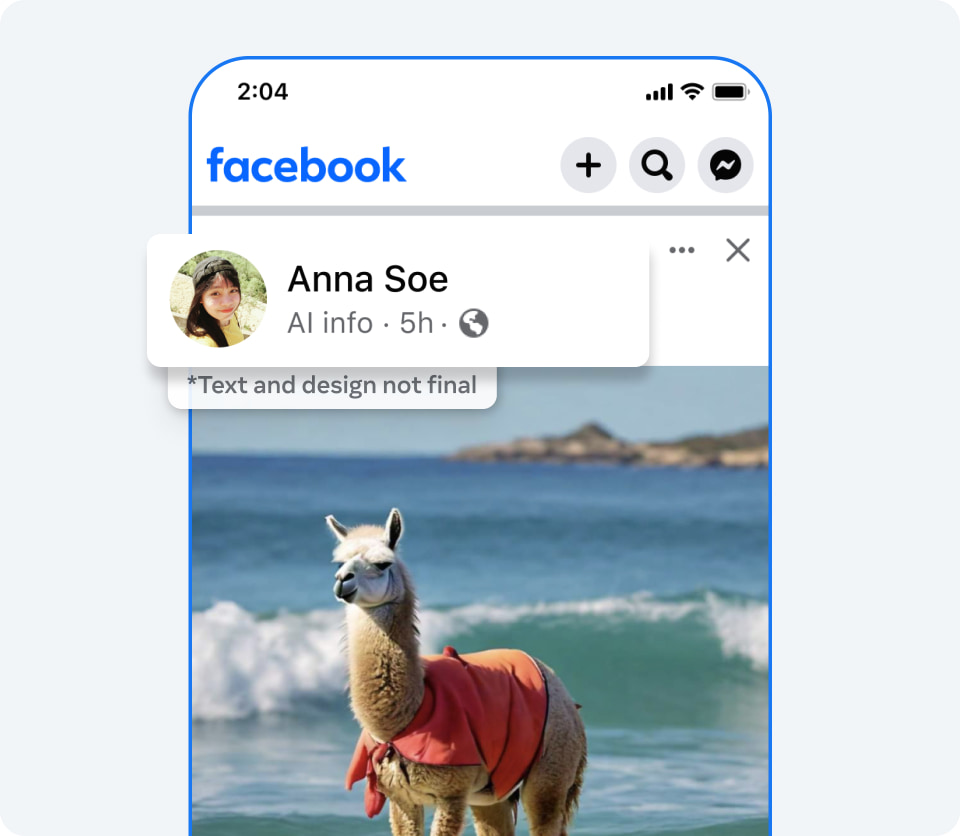
Images speak louder than words, and because of that, they can have bigger impacts than text.
In the world occupied by generative AI products, pretty much anyone without experience or knowledge using image editors can create any fake images by just imagining it. By simply inputting a AI image generator with some specific queries, there is no saying what imagery can be created.
While the creator may not wish to disrupt, the public who sees the AI-created images, may think otherwise.
And if uploaded to the internet, this can create a chain of events, where everything can lead to misinformation.
Meta as the largest social media around, realizes the threats of AI tools, which can blur the line between reality and fakery,
Because of this, the company said that it's working to identify and label all kinds of AI-generated images shared on its platforms.

Meta said that it plans to add "AI generated" labels to all AI-generated media, explained Meta Global Affairs President Nick Clegg in a blog post.
"That’s why we’ve been working with industry partners to align on common technical standards that signal when a piece of content has been created using AI."
Meta already applies 'imagined with AI' label to photorealistic images created with its own AI generator tool.
But this time, the company goes up a notch, by planning to apply the same label to images created by tools from third party tools.
They include images created by AI products from Google, Microsoft, OpenAI, Adobe, Midjourney and Shutterstock.
To make this work, Clegg said Meta is working with the companies behind the AI products to develop and implement common technical standards.
The method involves creating certain invisible metadata or watermarks stored within images that will allow Meta's systems to automatically identify AI-generated images made with their tools.
Meta plans to roll out the labels across Facebook, Instagram and Threads in multiple languages.

Meta’s announcement comes as online information experts, lawmakers and even some tech executives raise alarms that generative AI tools have become increasingly capable in producing realistic images.
Pair that with social media's ability to rapidly disseminate content, the risk of having fake information spread like wildfire is high.
The announcement also comes a day after Meta’s own Oversight Board slammed the company’s “incoherent” manipulated media policy in a decision related to an altered video of U.S. President Joe Biden.
"People are often coming across AI-generated content for the first time and our users have told us they appreciate transparency around this new technology," Clegg said in the post.
"We’re taking this approach through the next year, during which a number of important elections are taking place around the world," he said. "During this time, we expect to learn much more about how people are creating and sharing AI content, what sort of transparency people find most valuable, and how these technologies evolve."
He added that if a digitally created or altered image, video or sound “creates a particularly high risk of materially deceiving the public on a matter of importance,” the company may add a more prominent label.
"AI is both a sword and a shield," the post said, suggesting that the technology can be used as a powerful tool for offense and defense. It depends on who uses it, and for what purpose.
Read: How AI Makes And Breaks Indonesia's Presidential Election, And Also 'Resurrect' A Long Dead Dictator